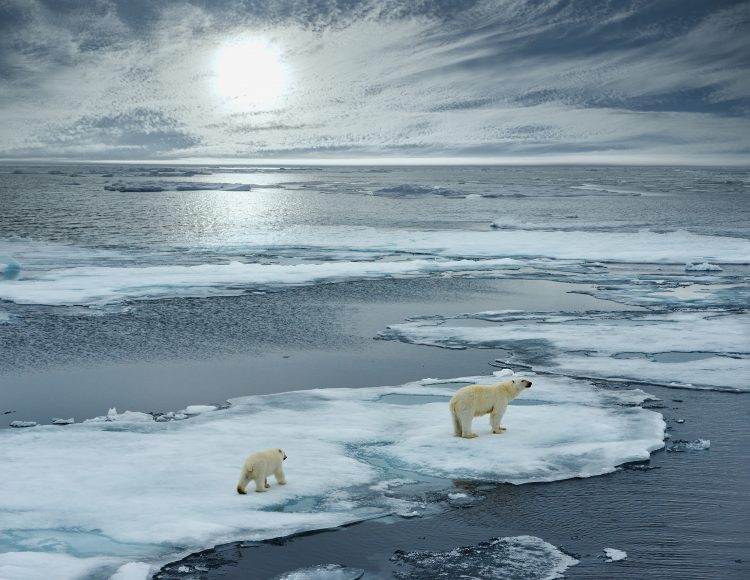Jennifer Lane, Content Officer at the Vegetarian Society, rounds up the latest climate change stories from across the world.
The screen lights up and Sir David Attenborough’s dulcet tones begin. But it’s not what you might think:
David Attenborough“Right now we are facing our greatest threat in thousands of years. Climate change. At the current rate of warming we risk a devastating future.”
The ‘Our Planet’ series, hosted by Attenborough and which hit Netflix last month, sends out a clear message to viewers about the future of our planet. While ‘Our Planet’ still dazzles with beautiful cinematography, Attenborough gives us more than a running commentary of the animals on-screen, suggesting policy changes and ideas on what we can do to help change the state of the planet.
Netflix currently has more than 139 million subscribers across the globe meaning that the message is well and truly out there.
Climate ‘chaos’
Another show, presented by Attenborough, exploded onto the BBC recently. ‘Climate Change – The Facts’ gave another important platform to this vital message. In a recent article for The New Yorker, the well-loved presenter said: “The longer we leave it, the more difficult it will be to solve the problem. Eventually, of course, you can’t solve the problems, and the result is chaos.”
The clear message given at the end of the programme was simple: we must eat more vegetarian food if we want to beat climate change once and for all.
The media has been simmering with environmental stories over the past few months, with issues of climate change and biodiversity reaching boiling point. Climate change and the state of nature are crucial issues for us all to consider every time we do our weekly food shop, commute to work or go on a day out. Now more than ever before is the environment at the forefront of our minds.
With so much going on, here we take a look at some of the biggest environmental stories of the past few months.
-
IPCC Special Report
Back in October 2018, the Intergovernmental Panel on Climate Change (IPCC) published a Special Report revealing that humans have just 12 years to stop climate change in its tracks – that’s 11 years to go now.
As things stand, human-induced warming reached approximately 1°C (likely between 0.8°C and 1.2°C) above pre-industrial levels in 2017, increasing at 0.2°C (likely between 0.1°C and 0.3°C) per decade. The IPCC report shows us that the Earth is really heating up.
To avoid irreversible level of damage by 2030, urgent action is needed. Luckily, the report showed there is one huge thing you can do to help reverse climate change: eat more vegetarian food.
-
School climate strikes
When Swedish student Greta Thunberg recorded a video to show her frustrations and worries about climate change, she had no idea it would have such a profound effect. The (then) 15-year-old called for “system change, not climate change” – an overhaul of the systems we currently have in place which allow mass-scale industry to flourish while our ice caps and native wildlife diminishes. On 19 March, more than 1.4 million students in 106 countries left the school gates and took to the streets to protest against climate change, making front-page news.
Climate change issues have really hit the younger generations hard, with many people concerned with how this will affect the future of the world they live in. Thanks to her brave stance on climate change, Greta has been nominated for a Nobel Peace Prize.
-
Climate change on The Frankie Boyle Show
Activist and writer George Monbiot voiced his environmental opinions on the Frankie Boyle Show, causing quite a stir. He said that while we can’t make a massive impact by switching out plastic cotton buds to cardboard ones, there are still several major things we can do to help save the planet:
- switch to a plant-based diet
- stop flying (as much)
- speak to policy-setters about how large corporations use fossil fuels
His advice calls for a total overhaul of our current systems, but the suggestions are incredibly simple. The clip went viral on social media as more and more people turn their focus towards the environment.
-
Climate change emergency
On 3 May, the UK became the first country in the world to declare a ‘climate change emergency’, with local authorities calling for the UK to be carbon neutral by 2030.
Following this, eight European countries including France, Belgium, Sweden and Spain released a statement about an ambitious proposal to spend 25 per cent of EU funds on defeating climate change. The strategy called for the EU to have net-zero greenhouse gas emissions by 2050 at the very latest, showing a major push for reversing the effects on our environment.
With so much in the media about climate change, what can going veggie do for the environment?

